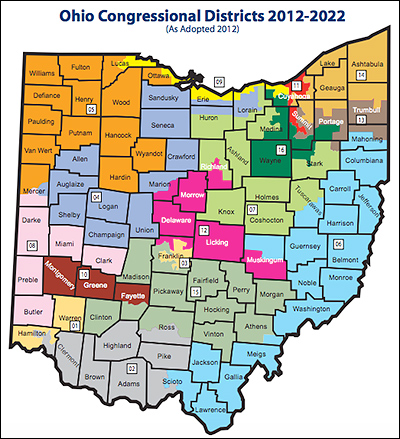By Jim Ellis
 March 25, 2020 — Gov. Greg Abbott (R), who moved the Texas run-off from May 26 to July 14 this past Friday night means that 16 federal contests – one Senate and 15 House races – will have a longer secondary campaign cycle. In Texas, if no candidate receives majority support in a partisan primary the top two finishers from the particular party advance to a runoff election.
March 25, 2020 — Gov. Greg Abbott (R), who moved the Texas run-off from May 26 to July 14 this past Friday night means that 16 federal contests – one Senate and 15 House races – will have a longer secondary campaign cycle. In Texas, if no candidate receives majority support in a partisan primary the top two finishers from the particular party advance to a runoff election.
Similar action has occurred in Alabama, where the Senate Republican runoff and secondary elections for both parties in open Congressional District 1 and for the GOP in open Congressional District 2 will now be held on July 14 instead of March 31.
In North Carolina, all federal nominations were decided in the March 3 primary except for the Republican race in Congressional District 11, Rep. Mark Meadows (R-Skyland/ Buncombe County) western state open seat. The North Carolina runoff has been moved from May 12 to June 23.
Mississippi has an inconsequential runoff for the 2nd District Republican nomination in a district where Rep. Bennie Thompson (D-Bolton/Mississippi Delta) will be the prohibitive favorite in November. Yet, this election, too, has been postponed until June 23.
The schedule change could greatly affect the Alabama Senate race and may be just what former US attorney general and ex-senator Jeff Sessions needs to re-tool his campaign message and reverse his recent political fortunes. The primary yielded retired Auburn University head football coach Tommy Tuberville placing ahead of Sessions, 33.4 – 31.6 percent. All post-primary polling gave Tuberville a discernible lead, but that trajectory could now change considering Sessions will soon have considerably more time to tell his political story. The July 14 winner faces Sen. Doug Jones (D) in November.
In the Mobile-anchored 1st District, both parties advanced to runoff elections. The eventual Republican nominee becomes a prohibitive favorite in the general election. Mobile County Commissioner Jerry Carl and former state senator Bill Hightower advanced to the runoff election and the winner of this runoff contest will become a heavy favorite in November. Carl placed first in the primary, nipping Hightower, 38.7 – 37.5 percent. Therefore, the runoff is anybody’s game.
For the Democrats, biologist Kiani Gardner and retired Marine Corps veteran James Averhart will battle for the party nomination. Gardner placed first with a 44.1 – 40.3 percent margin over Averhart. Almost twice as many people voted in the Republican primary within the 1st District race. The Democratic nominee will have little chance in the general election from this safely Republican seat.

 March 19, 2020 — The COVID-19 virus is causing obvious problems worldwide, and it’s changing the United States’ electoral system. Several states all with primaries on or before June 23 have already moved their date or are discussing such an option.
March 19, 2020 — The COVID-19 virus is causing obvious problems worldwide, and it’s changing the United States’ electoral system. Several states all with primaries on or before June 23 have already moved their date or are discussing such an option.
 March 12, 2020 — We have now seen US Senate primaries occur in five states with another six completing the filing process. In 15 instances, we already have either the general election pairings officially or unofficially set, though the Massachusetts Democratic primary on Sept. 1 is effectively the only determinative election.
March 12, 2020 — We have now seen US Senate primaries occur in five states with another six completing the filing process. In 15 instances, we already have either the general election pairings officially or unofficially set, though the Massachusetts Democratic primary on Sept. 1 is effectively the only determinative election. March 11, 2020 — Former vice president Joe Biden expanded his lead for the Democratic presidential nomination, but he didn’t quite deliver the knockout blow that many predicted.
March 11, 2020 — Former vice president Joe Biden expanded his lead for the Democratic presidential nomination, but he didn’t quite deliver the knockout blow that many predicted. 